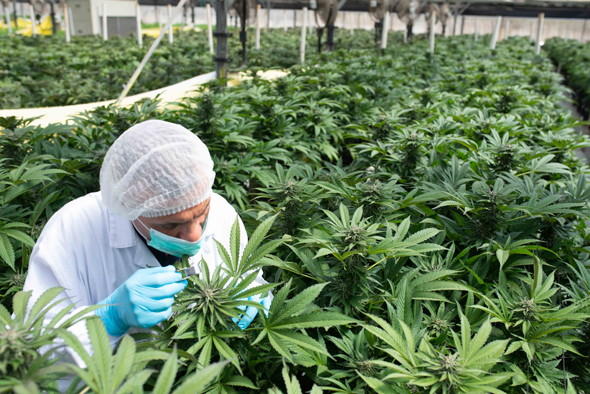Cannabis can help body fight Covid-19, says Cann Pharmaceutical CEO
Braden McGrath says cannabis might not help against the virus itself but it will help the immune system
Better Israel is a wholly-owned subsidiary of Better Holdings and is its R&D hub, as well as the sales pipeline of medical cannabis in Israel, serving over 5,000 patients monthly. Better specializes in developing strains to contain specific CBD and THC levels matched to the therapeutic and pain alleviation requirements of different medical conditions.
 Better Israel cannabis farm. Photo: Hila Kedi
Better Israel cannabis farm. Photo: Hila Kedi "The world is suffering and we are already seeing second waves," McGrath said. "There are a number of groups looking at how medical cannabis can help with Covid-19...We know cannabis boosts the immune system. Personally, I believe it will help, because it will help the immune system be stronger. It might not help against the virus itself but it will help the body fight the virus."
McGrath believes the traditional pharmaceutical industry is watching the medicinal cannabis sector closely and that it won't be long before the gap between the two is bridged.
"It is important to note that Israel is really the first country in the world to legalize medicinal cannabis at a quantity. There is a lot of brilliant research at places like Technion - Israel Institute of Technology and the hospitals in Israel, so Israel has a wealth of knowledge and that is where Better comes in," said McGrath. "We are taking that deep knowledge that's been generated in Israel and we are starting an FDA clinical trial. We've got clinical trials approved in Australia and we are starting in Israel now. We believe that over the next 2-3 years companies like ours will bridge the gap between the medicinal grade and pharmaceutical grade."
Also speaking at the event was former Israeli Air-Force Commander Eitan Ben Eliyahu, the chairman of Cannbit Ltd. Despite a dramatic drop in the share prices of cannabis companies at the start of the coronavirus crisis, Ben-Eliyahu said he was never worried. "After the hysteria in the market and the drop of around 300-400%, the industry was quickly characterized as vital," Ben-Eliyahu told Amir Kurtz. "We continued to work at full capacity and we didn't have to fire anyone or put anyone on unpaid leave. When people realized that this was a vital industry the prices recovered."



